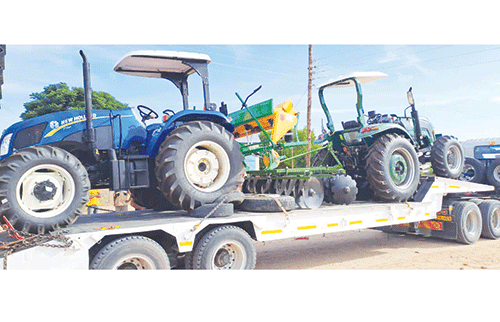Government, through the ministry of agriculture and with funding from the Namibia Agricultural Mechanisation and Seed Improvement Project (NAMSIP), has delivered a total of 24 new tractors to the Omaheke region.
Last year, government procured 350 tractors in order to fast-track the implementation of the national agricultural mechanisation initiative in all 14 regions of the country. The NAMSIP initiative will also see that a certified seed system is implemented in the 10 crop-growing regions.
All 350 new tractors were procured with matching implements in order to allow farmers to efficiently and timeously start with their operations without any delays, particularly with critical aspects like land preparation, planting, weeding and harvesting.
Besides Omaheke, other regions such as the two Kavango regions and the Ohangwena region have also received their share of the tractors, and have been hard at work making use of the scarce rainfalls witnessed in parts of the country over the past few weeks.
The tractors and implements will go a long way in boosting food security and productivity at household level within the regions, as about 70% of Namibians derive their livelihoods directly or indirectly from agriculture.
A large percentage of Namibian farmers are heavily reliant on rain-fed agriculture, and with recurring droughts, it has become difficult to produce sufficient food for themselves and for the market.
The biggest cause of food insecurity in the country is the lack of food reserves or carry-over stock at household level, which exposes the majority of rural or communal farming households to the vast impact of food insecurity.
Maintenance and training
In order to ensure that the new tractors and their implements are well- maintained and looked after, the agriculture ministry has conducted training for over 438 machinery operators across the country, who have been recruited to operate the tractors.
Out of the 438 trained operators, 152 already graduated last year. The remaining 286 are also expected to complete their training as farm machinery operators, and graduate in the coming months.
Part of their training includes a mandatory one-month course on the operation and maintenance of agricultural machinery and equipment, particularly those of the new tractors.
The trainees will be expected to safeguard the timely and good maintenance and management of the new machinery, while also ensuring that as many farmers as possible are reached, and targeted agricultural production across the country is achieved.



